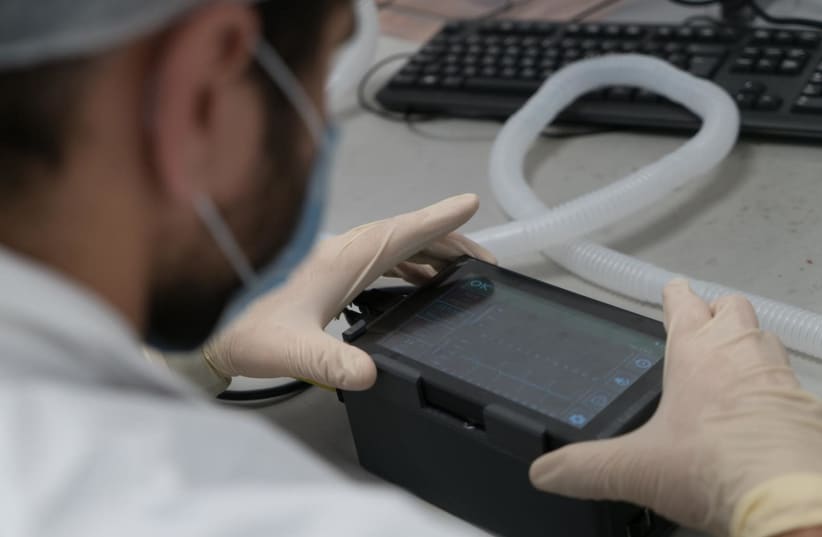As the number of coronavirus cases continues to grow, Israel’s Health Ministry has placed an order for 1,000 advanced monitors developed by the IDF which will help convert simple breath regulating devices into respirators.
Amid fears that the number of patients needing respiratory assistance may exceed the number of respirators available, the Ministry of Defense along with various defense industry companies have begun the production of Israeli-developed ventilators.
The IDF’s Military Intelligence Directorate’s 81rst Technological Unit has been working on developing protective gear and improvised medical equipment to assist healthcare workers in the fight against the deadly virus which has claimed some 141 lives.
Four weeks ago the unit began working to find a way to convert CPAP — continuous positive airway pressure — machines which are used by first responders to help people with light respiratory distress breath more effectively.
“Four weeks after the main clinical trial of the product, 100 systems will be transferred to Sheba Hospital and there are more that are ready,” said Maj.S, adding that the monitors are the result of joint development by Sheba Hospital and military intelligence.
“We started the development with the understanding that we are developing products in a world where there is no procurement,” he said.
Medical professionals have warned that CPAP machines should not be used on people with the coronavirus as it cannot replace ventilators and the machines may release virus droplets into the air which could infect medical professionals attending to the patient.
According to Maj. S, there were several important parameters that influenced the development of the system, including the ability for medical professionals to safely monitor the patient without the virus from becoming airborne, connect the system to the hospital so that all information on patients is available and monitoring the air-pressure in the patient.
The monitor developed by Sheba and Unit 81 “allows hospitals to use their equipment and significantly upgrade them with a small and cheap patent,” he said.
Dr. Amit Zabtani, a doctor at Sheba hospital told reporters that throughout the development process “we thought about the day that we would not have big ventilators” so the team focused on how to manufacture a simple and easy-to-operate system.
“We realized that there is a great need and understood that it’s a pretty horrible situation, that the respirators in the country will run out,” he said. “The solution that came up was the use of auxiliary devices and converting them into respirators that can cope with the challenge of corona patients.”
The system has been tested on a simulator which simulates the breathing difficulty of corona patients.
“After a month of working together and doing a lot of work, today we feel confident for the moment that we have to say that the respirators have run out,” Adani said.
Unit 81 has been working with MDA, various hospitals and the health ministry on technological aspects, including producing thousands of face masks for health care providers and 50 vans with internal separators to protect drivers from infected patients as well as information management software for laboratories testing for coronavirus.
